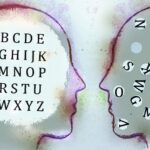In America, eating disorders cost the economy billions, even as a substantial number of people suffering from eating disorders never end up getting the treatment they need.
In a recent study, released in JAMA Network Open, a research group found that online-based cognitive behavioral therapy (CBT) may increase the number of young adults receiving treatment for their eating disorder. In some patients, the digitally-based approach had a more effective outcome at reducing symptoms than traditional means.
For the study, more than 600 women with eating disorders (with binge-purging behaviors) were recruited to take part in an online survey. The young participants were college students from more than two dozen academic institutions.
There were no participants with the diagnosis of anorexia nervosa recruited in the study, researchers noted.
Upon recruitment, the participants were split into either of two groups: the first group received digitally-based cognitive behavioral therapy while the second received usual care in their institution’s counseling center.
During the digitally-based therapy sessions, the participants were taught methods of managing triggers, improving body image, and how to incorporate healthier eating patterns.
In comparison to traditional care for managing symptoms, the digitally-based therapy, which paired the participants with a coach for support, was available at their leisure, subsequently increasing the intent to engage in treatment.
According to researchers, the findings demonstrated that the digitally-based therapy led to improvements in binge-eating behaviors, in addition to other traits.
“Our study found the digital cognitive behavioral therapy (CBT) intervention was superior to the usual care [in reducing depression and behaviors related to eating disorders]. And, at least 80% of those offered the digital intervention started treatment compared to 28% offered usual care, so digital CBT increased the number of college students who started treatment,” said Ellen Fitzsimmons-Craft, co-author of the study, in a news release.
“These results support the efficacy of a coached, digital, CBT intervention for college women with EDs, which has the potential to bridge the treatment gap for this problem,” the findings concluded.


